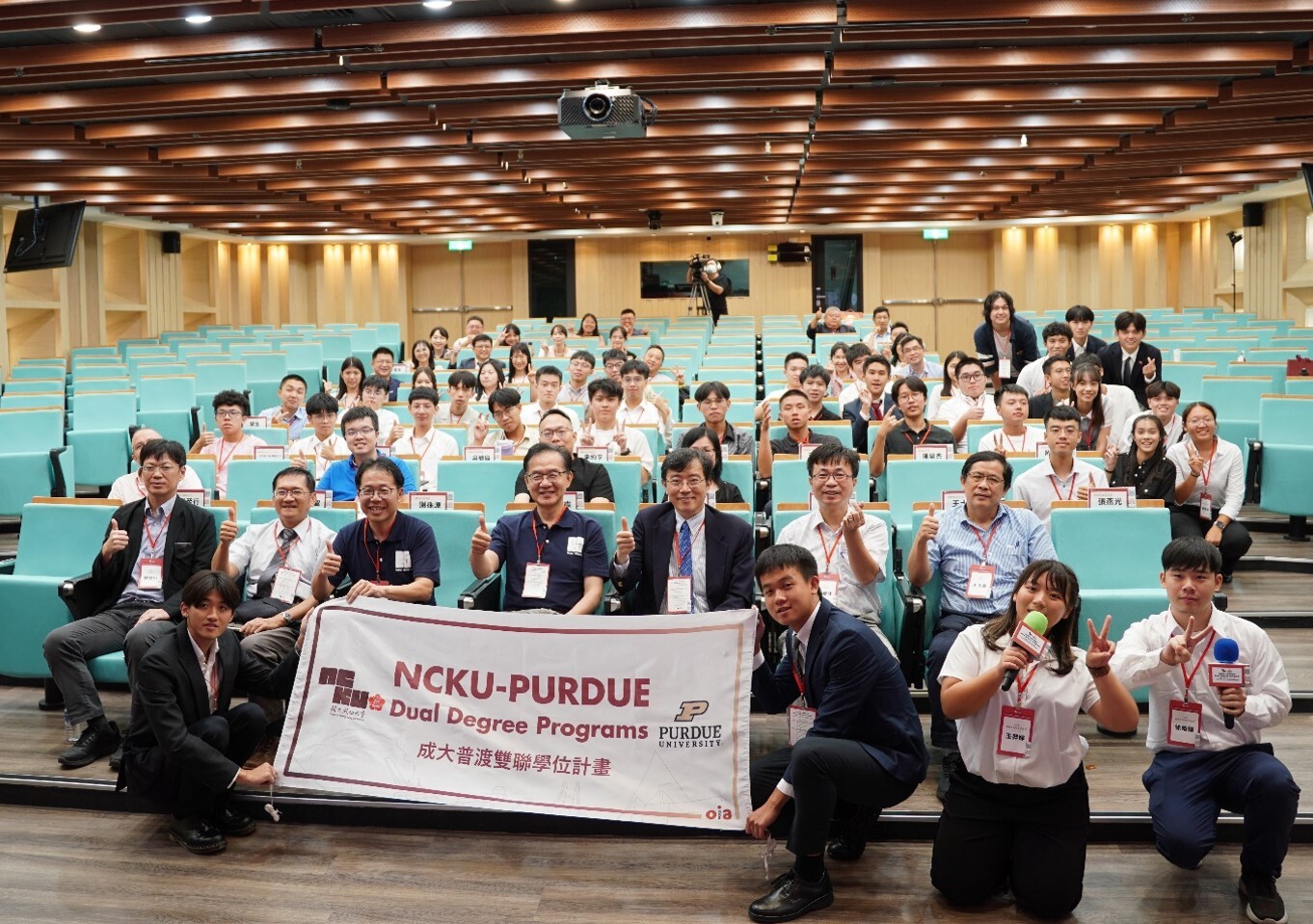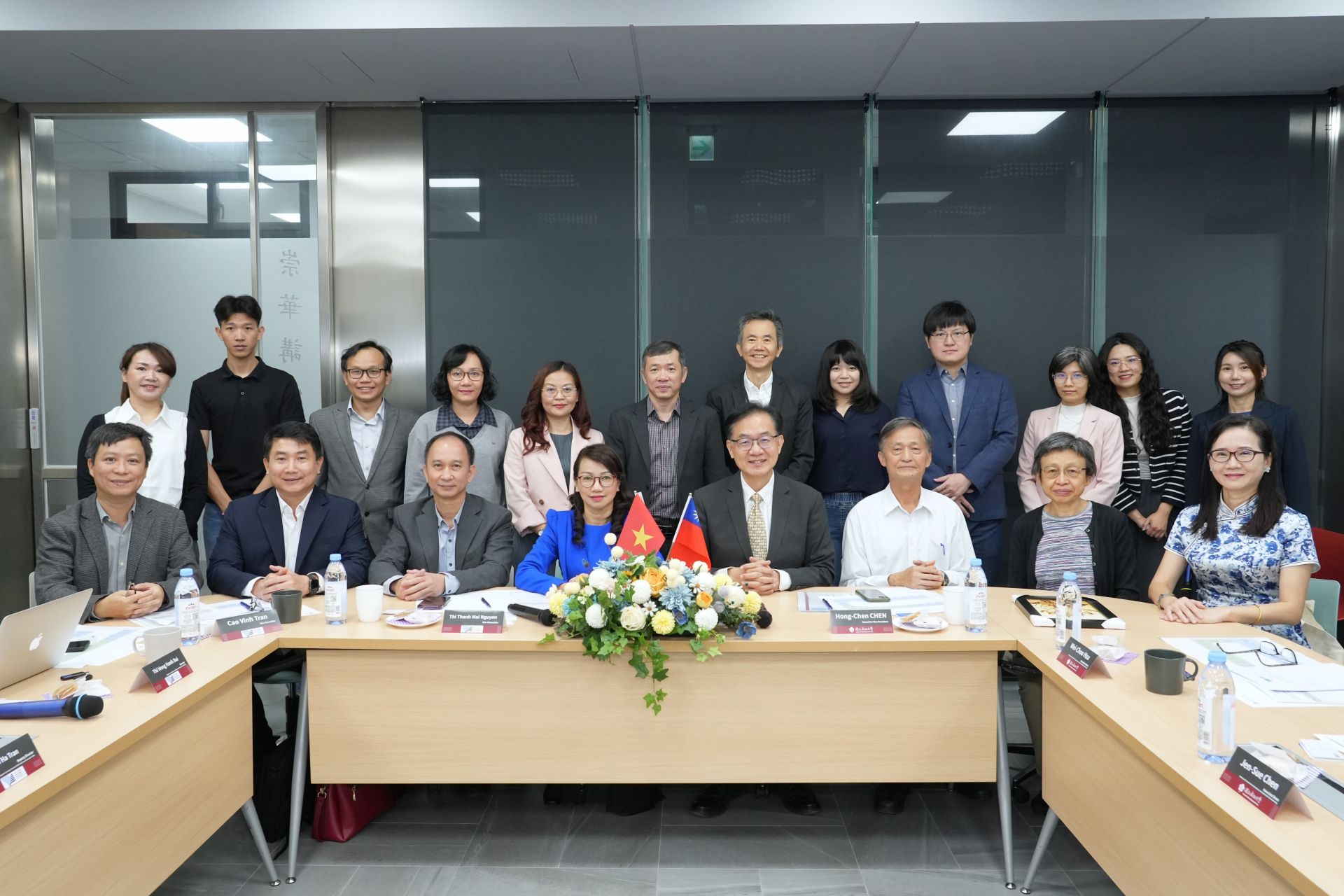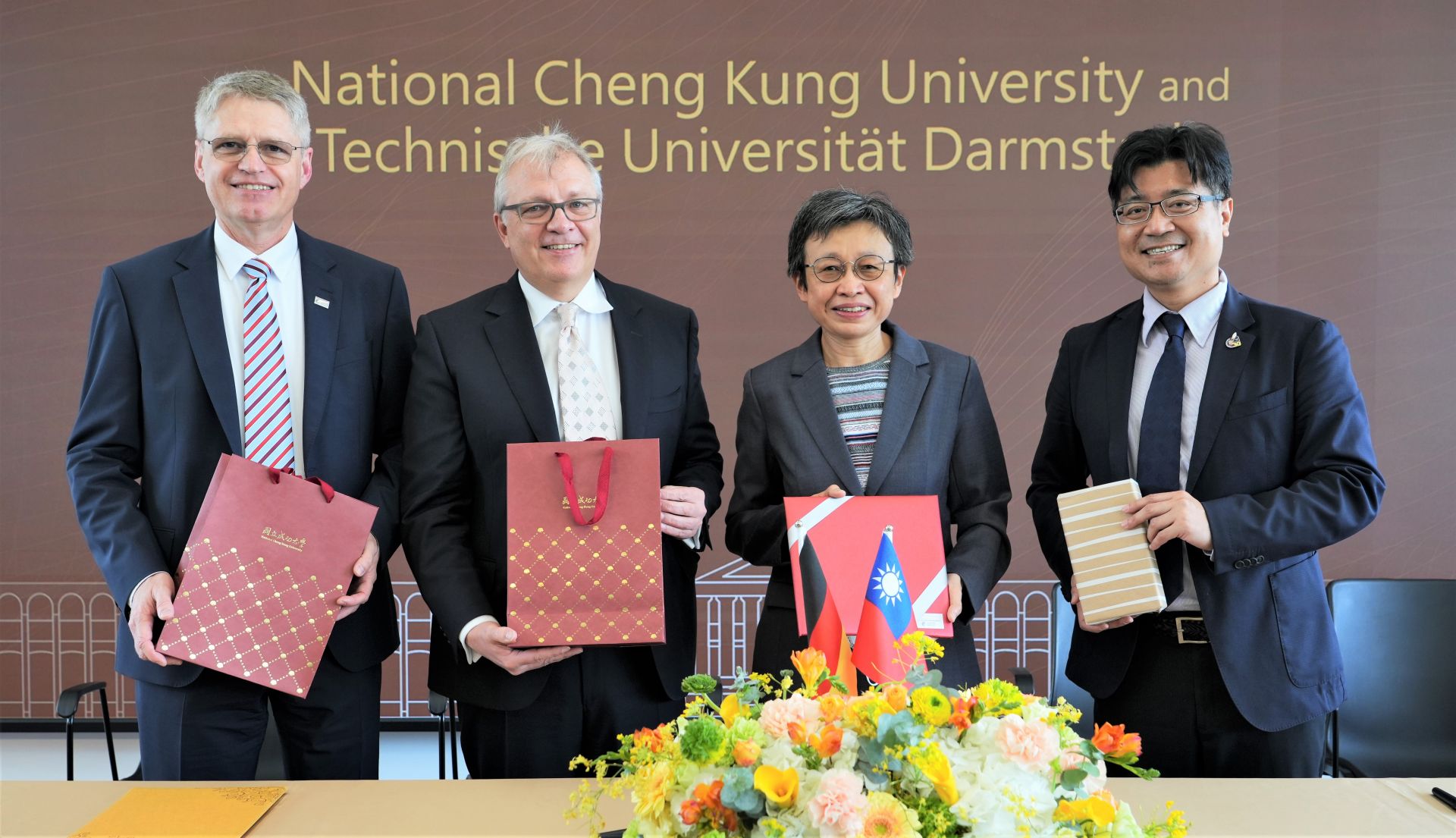National Cheng Kung University's interdisciplinary sustainable project, the "Seed Coleus Greenhouse," operated by the Local Regeneration Team of the Cross-Domain Sustainable Project, has officially become a member of the International Partnership for the Satoyama Initiative (IPSI) under the guidance of the United Nations University Institute for the Advanced Study of Sustainability (UNU-IAS) steering committee. The vision of the Satoyama Initiative is to achieve "symbiosis between society and nature" through diverse ecosystem services and values, integration of traditional knowledge and modern technology, and collaborative management systems.
This initiative focuses on five key actions: controlling resource use within environmental carrying capacity and resilience limits, promoting the circular use of natural resources, recognizing the value and importance of local traditions and culture, fostering participation and cooperation among diverse stakeholders, and contributing to local social-economic growth.
NCKU's Vice President for Research and Development, Professor Chuan-Pu Liu, highlighted that there are currently 314 international partners in the Satoyama Initiative, with 26 in Taiwan. Globally, there are 290 registered sites under UNU-IAS: IPSI, with 32 in Taiwan. The establishment of the Seed Coleus Greenhouse at NCKU as an IPSI member sheds light on Taiwan's multifaceted rural plain ecosystems to the international community.
Under the leadership of Professor Shan-Hui Hsu from the Department of Sports and Health, and Professor Yen-Hsun Su from the Department of Materials Science and Engineering, the interdisciplinary sustainable project at NCKU has pioneered the development of luminescent plant technology in collaboration with the Tainan Saltwater District's Bamboo Village Seed Coleus Greenhouse, integrating materials science, engineering, and agricultural expertise.
Supported by NCKU, the National Science Council's Engineering Office, and guided by the Agricultural Development and Soil and Water Conservation Bureau, as well as the Agricultural Bureau, along with local leaders such as Councilor Wen-Chi Chen and Village Chief Mei-Qing She, efforts have been made to align local agricultural practices with the spirit of sustainable Satoyama development. Significant achievements include the development of biochar from sorghum stalks and luminescent plant biotechnology. In March 2024, the collaboration with the Taiwan Orchid Growers Association led to the introduction of the Aurora Orchid, which received the Gold Award in the 2024 Muse Design Awards in the Plant & Animal category.
This initiative focuses on five key actions: controlling resource use within environmental carrying capacity and resilience limits, promoting the circular use of natural resources, recognizing the value and importance of local traditions and culture, fostering participation and cooperation among diverse stakeholders, and contributing to local social-economic growth.
NCKU's Vice President for Research and Development, Professor Chuan-Pu Liu, highlighted that there are currently 314 international partners in the Satoyama Initiative, with 26 in Taiwan. Globally, there are 290 registered sites under UNU-IAS: IPSI, with 32 in Taiwan. The establishment of the Seed Coleus Greenhouse at NCKU as an IPSI member sheds light on Taiwan's multifaceted rural plain ecosystems to the international community.
Under the leadership of Professor Shan-Hui Hsu from the Department of Sports and Health, and Professor Yen-Hsun Su from the Department of Materials Science and Engineering, the interdisciplinary sustainable project at NCKU has pioneered the development of luminescent plant technology in collaboration with the Tainan Saltwater District's Bamboo Village Seed Coleus Greenhouse, integrating materials science, engineering, and agricultural expertise.
Supported by NCKU, the National Science Council's Engineering Office, and guided by the Agricultural Development and Soil and Water Conservation Bureau, as well as the Agricultural Bureau, along with local leaders such as Councilor Wen-Chi Chen and Village Chief Mei-Qing She, efforts have been made to align local agricultural practices with the spirit of sustainable Satoyama development. Significant achievements include the development of biochar from sorghum stalks and luminescent plant biotechnology. In March 2024, the collaboration with the Taiwan Orchid Growers Association led to the introduction of the Aurora Orchid, which received the Gold Award in the 2024 Muse Design Awards in the Plant & Animal category.
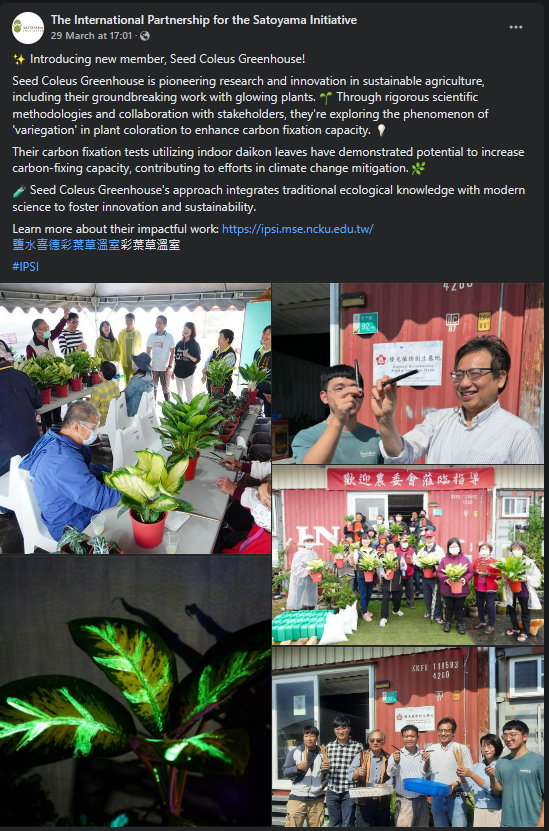
Announcement on Facebook from the United Nations University Institute for the Advanced Study of Sustainability (UNU-IAS) regarding the International Partnership for the Satoyama Initiative (IPSI).
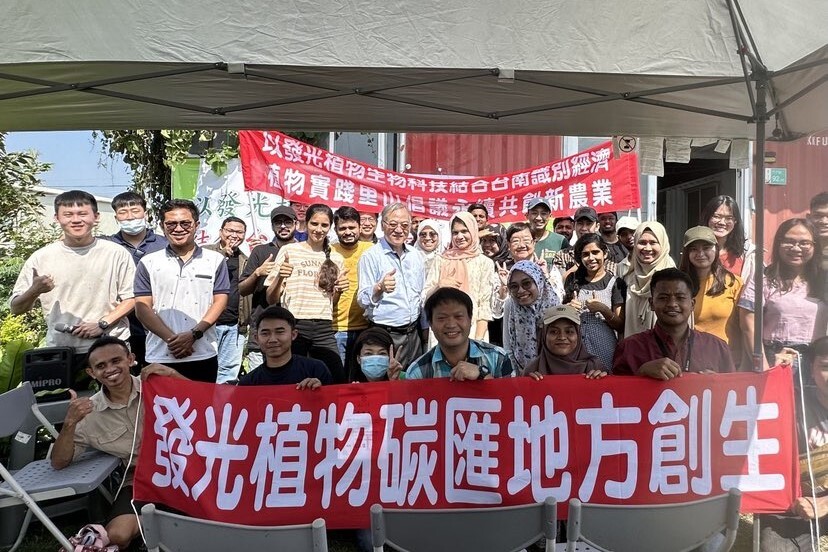
The Ministry of Agriculture and Rural Development, along with the Soil and Water Conservation Bureau, supports collaborative initiatives among universities for rural development practices.
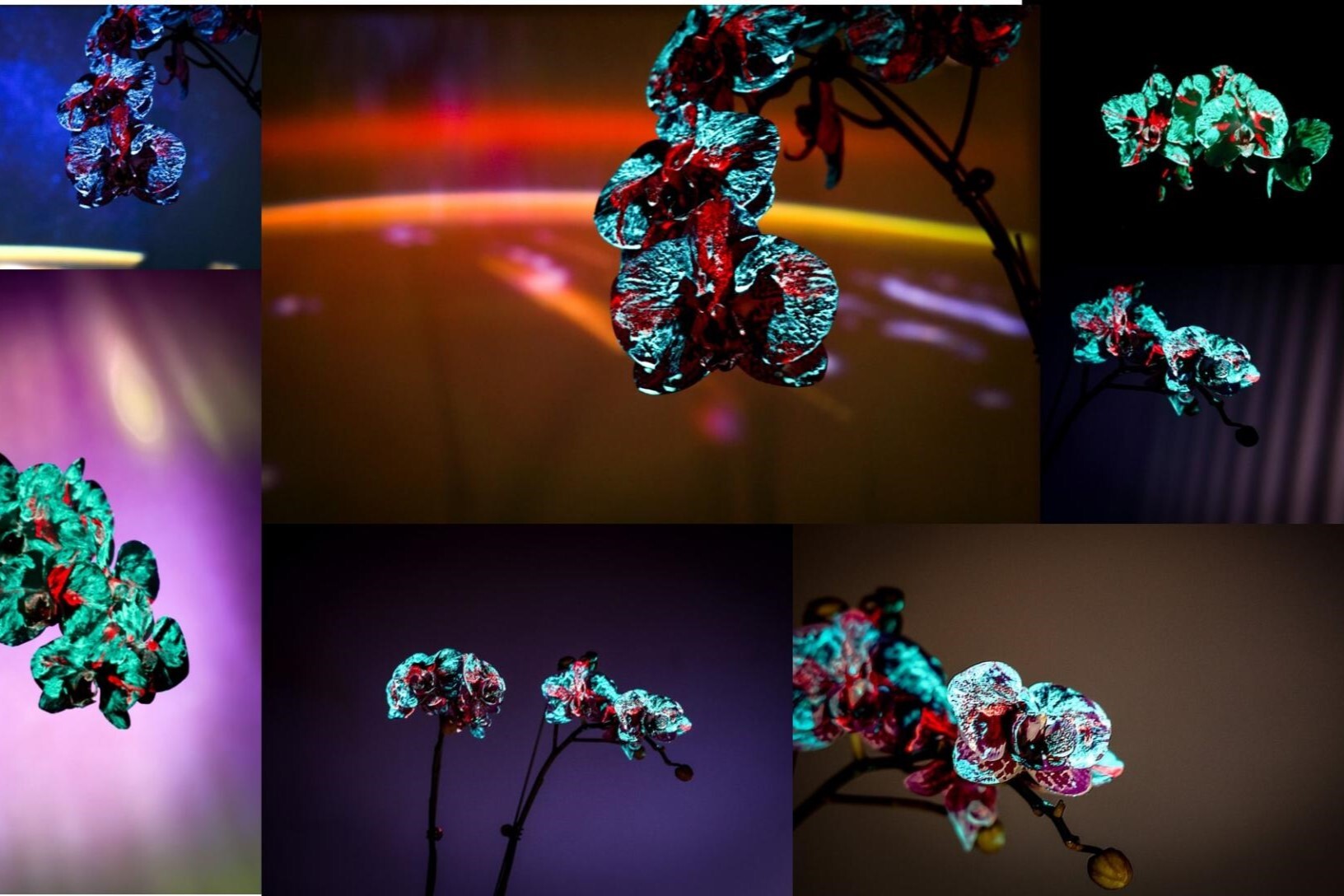
The Luminescent Plant - Aurora Orchid Receives the 2024 Muse Design Awards Gold Prize in the Flora and Fauna Category.
